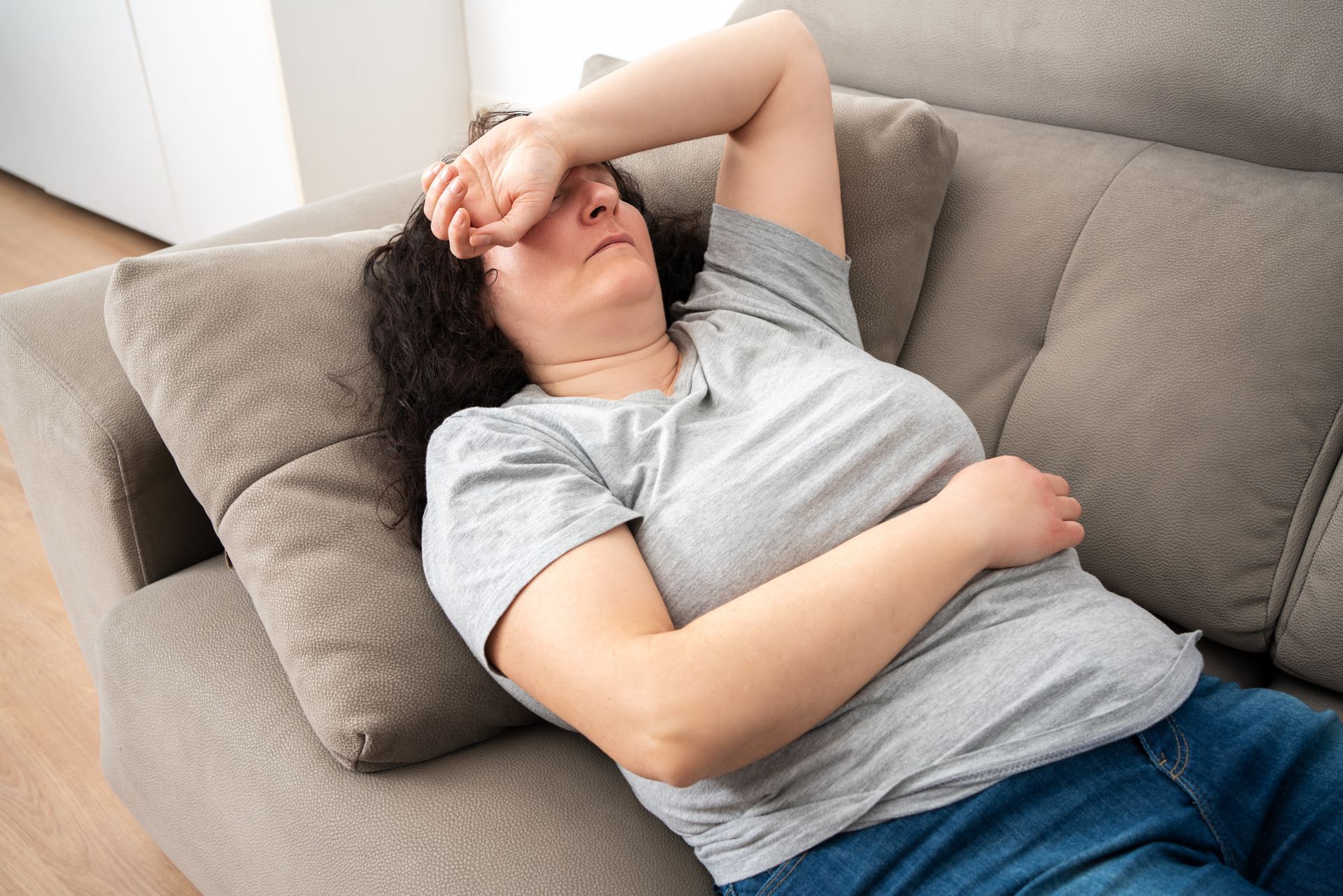Female Sexual Desire After 40: How the Transition to Menopause Affects Libido

Menopause marks a major transition in a woman’s life, bringing changes that affect everything from mood to metabolism. But one of the most common and often least talked about symptoms is a change in libido. Many women notice that their interest in sex begins to fade, sometimes slowly, sometimes suddenly.
If this sounds familiar, you’re not alone. A declining sex drive during the transition into perimenopause and menopause is incredibly common, but it doesn’t have to be permanent. Understanding how these changes affect your hormones and how to restore balance can help you feel like yourself again.
How Hormonal Changes During Menopause Can Affect Your Sex Drive
As your body moves through perimenopause and menopause, hormone levels naturally shift. Estrogen, progesterone, and testosterone all play a role in sexual health, and when they begin to fluctuate, the effects are often felt both physically and emotionally.
You may notice:
- Less frequent sexual thoughts and reduced desire: You might not think about sex as often, or the desire simply isn’t there when it used to be.
- Reduced arousal or inability to climax: Lower levels of estrogen can reduce blood flow to the vaginal and clitoral tissues, while declining testosterone impacts sexual motivation and responsiveness. Together, these changes can make it harder to become aroused or reach orgasm, often leading to less fulfillment and satisfaction during intimacy.
- Vaginal dryness or pain during intercourse: As estrogen declines, vaginal tissue becomes thinner and less elastic. This can cause discomfort or even pain, making intimacy something you start to avoid rather than look forward to.
- Fatigue or lower energy levels: Hormone fluctuations can lead to a constant sense of tiredness, even with adequate rest. Low energy can make it difficult to feel mentally or physically ready for intimacy.
- Mood swings, anxiety, or irritability: Hormones like estrogen and progesterone also regulate serotonin and other neurotransmitters that influence mood. When these levels drop, it can trigger irritability, anxiety, or emotional ups and downs that dampen desire.
- Sleep disturbances: Hot flashes, night sweats, and hormonal changes can disrupt your sleep cycle, leaving you exhausted the next day and less interested in sex or social connection.
- Feeling less confident or “not like yourself”: Many women describe a sense of disconnection, not feeling as vibrant, attractive, or emotionally grounded as they once did. These feelings often trace back to hormonal imbalance, not personality or mindset.
For many women, the changes are subtle at first: a little less energy, more stress, or less interest in intimacy. Over time, they begin to affect confidence, relationships, and overall quality of life. It’s important to remember that these shifts are biological, not personal.
Improve Libido and Restore Balance with Hormone Replacement Therapy
When hormones fall out of balance during perimenopause, the effects can ripple through nearly every part of your life. Hormone Replacement Therapy (HRT) helps restore that balance by supplementing the hormones your body no longer produces in sufficient amounts.
By re-establishing optimal levels of estrogen, progesterone, and sometimes testosterone, HRT can dramatically improve sexual health, energy, and overall well-being. These hormones work together to help you feel more like yourself again:
- Estrogen replenishment supports vaginal health, improves natural lubrication, and enhances blood flow for greater comfort during intimacy.
- Progesterone contributes to better sleep, emotional stability, and a sense of calm.
- Testosterone, often overlooked in women, can reignite sexual desire and motivation, as well as improve muscle tone, energy, and focus.
When to Consider Hormone Replacement Therapy for Menopause Symptoms
If shifts in hormones due to menopause have changed how you feel about intimacy or yourself, now is the time to take action. You don’t have to wait until symptoms become overwhelming. Restoring hormonal balance early can help protect your long-term health, mood, and quality of life.
At Rejuvime Medical, we know that no two women experience perimenopause and menopause the same way, which is why hormone therapy should never be one-size-fits-all. Our providers create personalized hormone replacement therapy (HRT) plans based on advanced lab testing, a thorough review of your symptoms, health history, and individual goals.
Throughout your journey, our medical team monitors your progress closely, adjusting your treatment as needed to ensure it remains safe, effective, and aligned with how you feel.
Take the first step toward feeling like yourself again. Schedule your consultation with Rejuvime Medical today to discover how restoring hormonal balance can help you reconnect with your body, your confidence, and your passion for life.
Get in Touch
Questions? Contact us today by phone or book an appointment online.
Questions? Call our office:
(225) 228-3128





